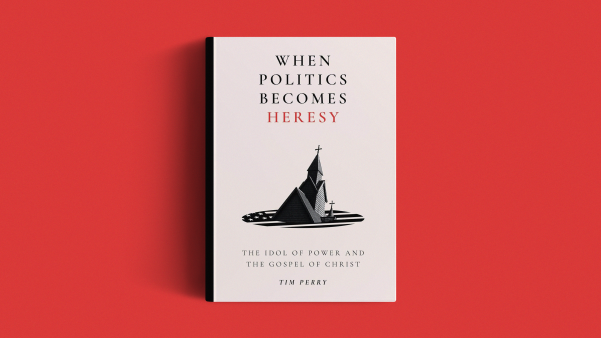Prague Peacemakers Fight Back
In the Asian hotel where I am currently sheltering from the burning of the noontide heat, I have been perusing a month-old English newspaper. Its correspondence columns provided a curious commentary on the Northern Ireland situation. “It will not be lost upon your readers,” said the writer of one letter, making doubly sure, “that that excellent body of adult-minded people, the atheists, are in no way connected with this latest example of Christian savagery and blood-letting.” This view of the Church Militant will greatly encourage those in that troubled province who want to get the violence off the streets and back into the Church, where it belongs.
But more than the above-mentioned E.B. of A.M.P. are concerned about man’s warlike tendencies. The recent communiques of the Prague-based Christian Peace Conference have been in their own way compelling reading. Their English usage, always dizzily unpredictable, has further suffered during the last two years as domestic squabbles have brought that body close to total disintegration.
Perhaps in an attempt to take the spotlight off internal difficulties, the latest press release I have seen harks back to the safer subject of analyzing the causes of World War II. Having doctored the fractured English, I take the key sentence to be saying: “Except for racism, which itself was dangerous enough to people, it was also the limitless anti-communism that created an atmosphere wherein all the most terrible crimes on humanity were possible.” (A Russian member at the WCC central committee’s last meeting, be it noted, confirmed that there was no racism in the USSR, a statement that agreeable group heard without demur.)
It is somehow reassuring to see the CPC back on familiar ground. Plugging the “limitless anti-communism” line leaves no room for that dangerous self-examination which of late has given such pain to the jovial metropolitan of Leningrad, who does not enliven WCC occasions to be treated scurvily in what is now virtually his own backyard.
That the CPC was rallying further could be seen in the indignant rebuke that, the press release recounts, was administered to the mayor of West Berlin. With unaccustomed brevity and clarity it said, “Stop repressing the protest of youth!” And if the mayor dared quibble about what was meant by repression of youth, no one was better qualified to tell him than those CPC executive members whose governments encourage dissidents abroad while suppressing them at home.
EUTYCHUS IV
Happy Reflections
I have received CHRISTIANITY TODAY since my college days in 1957. My responses to the magazine have ranged the gamut from utter disgust to rapturous delight. No article, however, has given me more hopefulness and happiness about evangelicalism than Frank Gaebelein’s “Reflections in Retrospect” (July 31). Evangelicals may yet come out of the dark forest of cultural, political, and social provincialism!
DAN R. ERWIN
Bethany Baptist Church
Boulder, Colo.
As one who has also passed the three-score-and-ten age limit, I very much appreciated the article by Dr. Gaebelein. I was especially interested in the significance he ascribes to the providence of God. This has also been a great and overshadowing factor in my experience.
(The Rev.) H. M. VEENSCHOTEN
Byron Center, Mich.
I enjoyed “The Idea of a Christian College” and “Reflections in Retrospect” very much. But, as I read the two pieces consecutively (doesn’t everyone read C.T. consecutively?), I found myself wishing that Arthur Holmes might have shared the blessing of that “unique course in creative writing” which has made Dr. Gaebelein’s literary efforts masterpieces of communication.
Are the silly syntax and specialized synonyms of scholarly articles perspectival manifestations of the world-viewishness that is “a self-conscious and self-critical commitment, an honesty that need not be ashamed?”
What Dr. Holmes has to say is much too good to be said in language I have to explain to my wife. Can’t we leave the word games to Spiro Agnew and Reader’s Digest?
C. WILLIAM SHAFFER
Highland Park
Evangelical Free Church
Columbus, Neb.
The Way To The Stars
I was much impressed by the two articles on apologetics by Millard J. Erickson (July 17 and 31). They seemed to me some of the most substantial and worthwhile material I have seen in this magazine for some time. I thoroughly agree with the author that the time has come to try to find our way—with God’s help—out of the seemingly meaningless, purely existential “slough of despair” in which we often find ourselves at present and look toward the guiding stars of God’s eternal moral and spiritual universe, particularly as expressed in history’s most unique and perfect character, our Lord and Saviour Jesus Christ.
DAVID E. ERIKSON
Fresno, Calif.
Vital Distinctions
Carl Henry’s comment in Footnotes (July 31) on Walter Hollenweger contains serious discrepancies which must be corrected. The distinction made by Dr. Hollenweger was not between those “interested mainly in evangelism and those interested primarily in the social implications of Christianity.” It was, rather, a distinction “between those who were primarily interested in the correct definition of salvation and those who were primarily interested in the world-and life-transforming effects of salvation.” Vital Christianity has always been interested in that difference.
EUGENE L. SMITH
Executive Secretary
World Council of Churches
New York, N.Y.
My comment on Dr. Hollenweger’s remarks grew out of a Philadelphia newspaper report of the Buck Hill Falls meeting by a competent religion reporter. I was so shocked to read as coming from Dr. Hollenweger a view so similar to that voiced by an ecumenical aide who sought to undercut the World Congress on Evangelism in Berlin that at the time I contacted the reporter, who checked his notes and was convinced of the accuracy of the report based on the prepared address and related comments by Dr. Hollenweger. I consider the remarks in this context a slur on American evangelicals who do not hop, skip, and jump to the ecumenical redefinition of ecumenism.
CARL F. H. HENRY
Professor of Theology
Eastern Baptist Seminary
Philadelphia, Pa.
Improving The Law
It was with some degree of surprise that I learned that the Lutheran Church in America has improved on God’s law regarding sex and marriage (“Marriage Covenant: Promises, Promises,” July 31).
It was with much assurance that I read the editorial and was relieved to know that it takes non-Lutheran theology and ethics to set Lutheran teaching in a biblical perspective again. Your emphasis on the publicly affirmed and contractually protected marriage commitment was greatly appreciated. What a small day for Lutheranism as a whole! What a great day for Christendom at large!
MYRON C. MALTZ
Redeemer Lutheran Church
Arkansas City, Kan.
A few weeks ago it was the Presbyterians, and now the Lutherans are getting into the act. When are some churchmen going to stop wasting their time dickering in committees on basic sexual mores when God has clearly spelled out the norm in the pages of Scripture?…
Maybe it is about time that some denominations quit forming resolutions, and started having marathon Bible reading sessions to discover what God has already declared in the areas they are attempting to rework.
CHUCK TOMPKINS
Dallas, Tex.
How To Answer Subversion
Your editorial “Subversion in the Church” (July 31) is indeed interesting but falls very far short of the point and misses the biblical answer.…
You say, “The tragedy is that the false teachers live off money that has been given to propagate what these teachers do not believe.” No, the tragedy is that these false teachers are so completely in control of denominational programs and are so well entrenched in the political machinery that they cannot be removed or replaced, and so they continue to spread their apostasy.
You suggest that orthodox believers should stay in the apostate-run denominations because “the churches [are] their churches, begun and nourished in orthodoxy.” Then you say, “However God’s people answer these questions.…” This is where you really miss the boat. It is not how God’s people answer these questions that matters; it is how God’s Word answers these questions that counts. God’s people should be encouraged to be obedient to God’s Word: “Wherefore come out from among them, and be ye separate, saith the Lord, and touch not the unclean thing; and I will receive you” (2 Cor. 6:17).
PHILLIP A. BASHAW
First Southern Methodist Church
Dallas, Tex.
The editorial touches on urgent and sensitive issues of concern to all of us who care about the vitality of orthodox Christianity. As I trust you are aware, however, the use of the term “subversion” lends itself to dangerous misunderstandings. History demonstrates that many of those appointed by the Holy Spirit, among them Jesus himself, have been condemned as subversives by the supposedly orthodox.…
Your warning against the church’s subversion both by those who reject responsibility for tradition and by those who subscribe to an introverted orthodoxy of formal assent alone is appropriate. More emphasis on the latter subversion, however, would present a better balanced picture of the sources of the Church’s decay. It might also hasten the day when committed members of the Body of Christ will speak the truth in love and in respect for the diversity of the Spirit’s gifts to the whole Church.
RICHARD J. NEUHAUS
Church of Saint John the Evangelist
Brooklyn, N.Y.
Fair Disadvantage?
I was very interested in your editorial comments on the fairness doctrine (July 31). While I agree with your concern about silencing people by government edict, I am also concerned about how you would propose to curb malicious and slanderous views on the air.
People who are unable to discriminate, or who do not have enough information, or who assume that when a man claims to speak for God he will naturally tell the truth, may be at a disadvantage. They may even be taken advantage of. It seems to me there is plenty of scriptural evidence for concern of those who are misused, manipulated, or misled. If this kind of activity is not to be stopped what do you propose?
HOWELL O. WILKINS
Wilmington District
Superintendent The United Methodist Church
Wilmington, Del.
Lutheran Watch
I would like to compliment Russell Chandler on his basic understanding of the differences in Lutheranism and his objective reporting (“Drawing Together or Pulling Apart,” July 17).…
I have felt for years that Lutheranism would eventually be divided into two main camps, conservative and liberal, and that this would take place after fellowship had been declared between LCA and Missouri or after mergers had taken place.
Now, however, it appears that LCA is in such a rush to get rid of all vestiges of orthodox Lutheranism that she is not going to wait around for Missouri “to see things her way” and may not even wait for ALC.
The disposition of the ordination of women by ALC this fall will go a long way in determining the future picture of the structure of Lutheranism in America. The passage of such a measure could be the first step between a merger of LCA and ALC and could very well result in the abrogation of fellowship between ALC and Missouri.
Needless to say, the next couple of years are going to be very interesting as well as decisive for Lutheranism. I am glad that C.T. will be around to report on them.
AL BOYSEN
Faith Lutheran Church
Tullahoma, Tenn.










